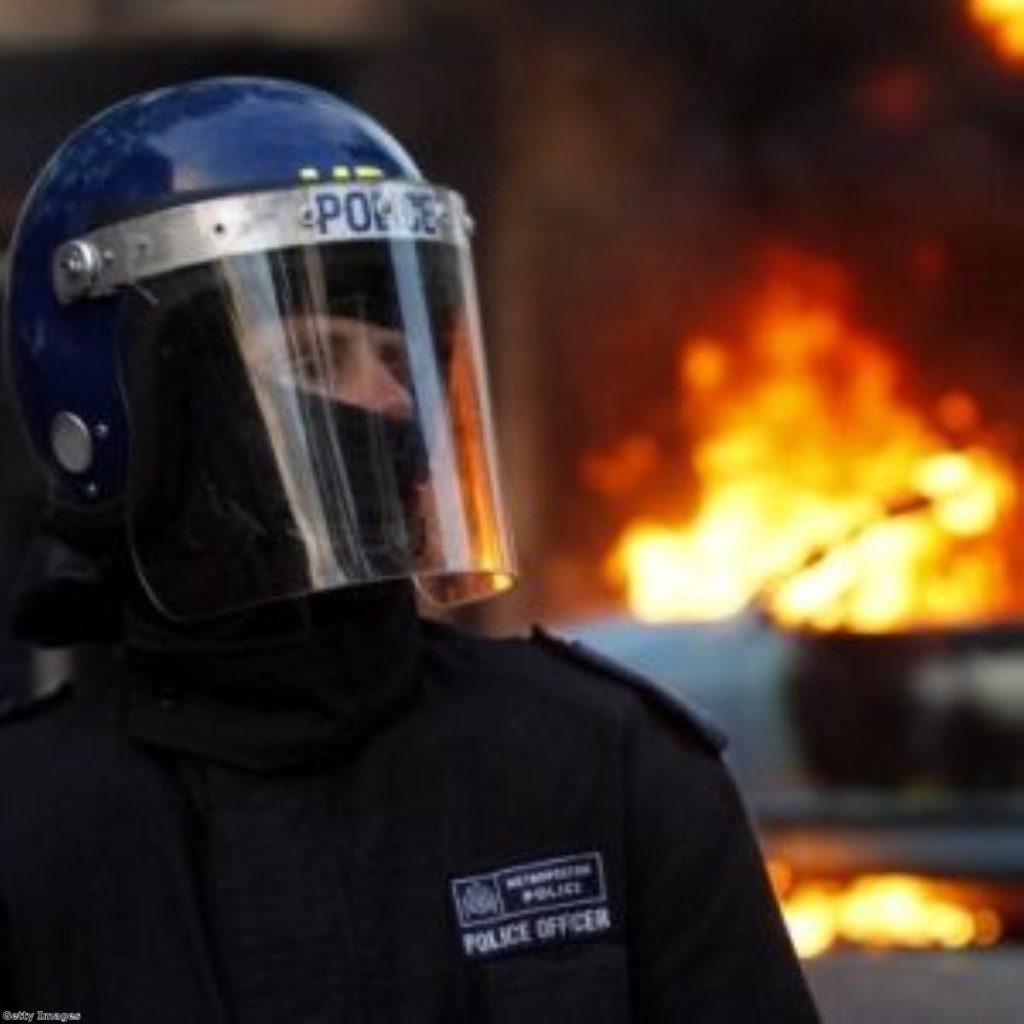No water cannons, no rubber bullets: MPs report on summer riots
By Ian Dunt Follow @IanDunt
The riots which hit England this summer do not justify the use of water cannons or rubber bullets by police, an influential committee of MPs has found.
The home affairs committee said the most important factor in the spread of the disorder was the sense that police had lost control.
But they did not recommend a social media blackout, saying potential rioters could just as easily have got the sense of police vulnerability from the television news.
"We cannot recommend any increase in police powers as a result of the August disturbances without seeing specific evidence of a need for such powers and none came our way during this inquiry," the MPs' report said.
"It is our view that in the situation then prevailing, it would have been inappropriate as well as dangerous, to have employed water cannon and baton rounds. We agree with our witnesses, including senior police officers that such use could have escalated and inflamed the situation further."
While there was a groundswell of support for the use of more heavy-handed policy tactics during the disorder, MPs' conclusions were in line with expert advice, which argued that water cannons would probably have dispersed rioters, making them harder to corral.
The disorder has seen a longer-term reappraisal of police tactics, however, with the Metropolitan police currently toying with the idea of buying three water cannons at a cost of £1.3 million. Officers are also being trained in the use of baton rounds and rubber bullets.
Some argue that such changes are necessary during volatile historic moments when more social disorder could break out. Other say the use of such weaponry would further alienate sections of the black community from the police, one of the key factors behind assessments of the violence.
The home affairs committee blamed low police numbers for the disorder, with the report criticising local forces for not deploying officers quickly enough.
The Policing Large Scale Disorder: Lessons from the disturbances of August 2011 report said the decision to flood large parts of the UK with police quelled the disorder.
"If numbers could have been increased more rapidly, it is possible that some of the disturbances could have been avoided," it said.
"We regret this did not happen and, with the benefit of hindsight, we regard the operation to police the disorder in many towns and cities, and particularly in London as flawed."
Mutual aid systems where police officers are transferred to another force with urgent need needed to come into operation much more quickly, it said, although there were concerns the system also left certain areas particularly vulnerable.
"Clearly a feeling existed that desirable consumer goods could be made available by looting. There was a substantial element of opportunistic criminality and copycat behaviour," the report said.
"The absence of a police presence or sight of police officers apparently standing by and allowing criminal behaviour to take place was distressing for those whose homes and businesses were being attacked," it added.
Speaking later, committee chair Keith Vaz said "the state effectively ceased to exist – sometimes for hours at a time".
The Met and the Independent Police Complaints Commission (IPCC) were criticised for their failure to maintain communications with the family of Mark Duggan, whose death following a police operation triggered the rioting in Tottenham, before it spread out across the country.





-01.png)